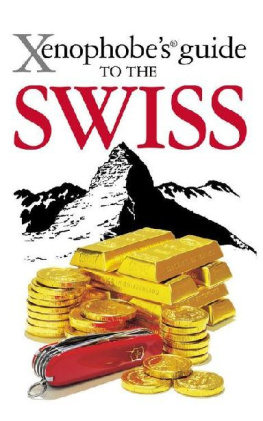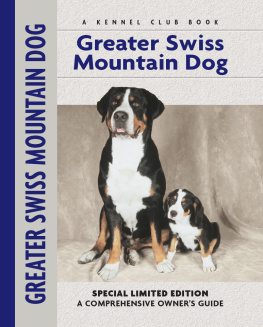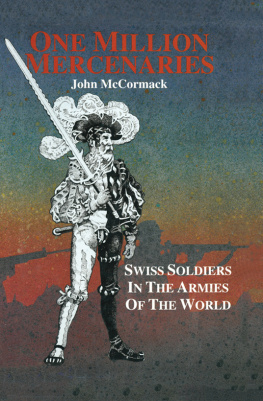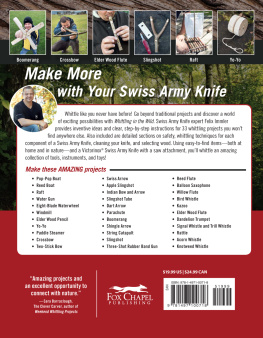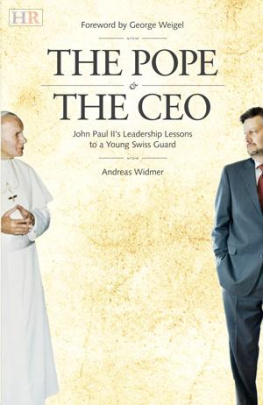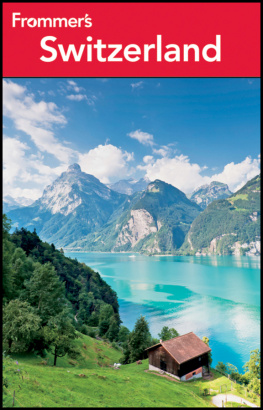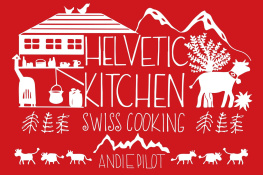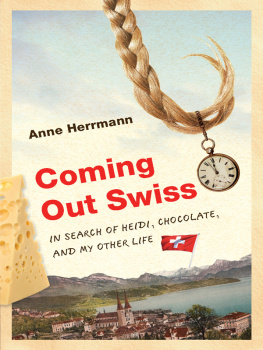The laws of physics decree that the bumble bee cannot fly. Similarly, by the laws of economics, the Swiss should not be doing so sickeningly well. A land-locked nation, with a home market smaller than London, speaking four different languages, no natural resources other than hydroelectric power, a little salt and even less fish, no secured markets for their products through colonies or being part of a trading block, they should have come to earth with a bump long ago. Instead of which, the Swiss are the only nation to make the Germans appear inefficient, the French undiplomatic and the Texans poor. The Swiss franc is a better bet than gold and the Swiss economy more solid than the granite face of the Matterhorn.
The Swiss are the only nation to make the Germans appear inefficient, the French undiplomatic and the Texans poor.
The Swiss rank amongst the top three highest per capita incomes in the world. But take consolation, they dont enjoy it one bit. The Swiss claim, as they have done since the formation of the original three-cantonal alliance in 1291, that their success is only a temporary state of affairs and it will all shortly end in tears. They stubbornly refuse to believe they are doing well and will even dispute the figures that prove it. So, like the poor donkey chasing the carrot, the Swiss pull their collective cart along ever faster, chasing the goal they passed years ago.
Perhaps it is blissful ignorance that keeps the bumble bee airborne. For the Swiss it is anything but ignorance that keeps them flying so high it is the fear that they will one day lose everything they have worked for.
A federal case
Switzerland is a federation of 26 cantons, three of which are divided into half cantons. (Half a canton is better than none.) These cantons are like miniature countries: self-financing, raising their own taxes and spending them as they want from their own courts and police forces to education and even driving tests. Historically some were once sovereign states and many still believe they are.
Cantons are like miniature countries: self-financing, raising their own taxes and spending them as they want. Historically some were once sovereign states and many still believe they are.
The cantons comprise nearly 3,000 totally independent communities, each making its own decisions about such things as their welfare systems, gas, electricity, water, local roads and even public holidays.
Who controls this recipe for disaster? On the one side the federal government, and on the other the Swiss public with their unique and powerful direct voting system. By being balloted on every conceivable issue every three months, the Swiss dog actually appears to wag its own tail.
By being balloted on every conceivable issue every three months, the Swiss dog actually appears to wag its own tail.
Only after digesting the diverse and independent nature of the Swiss federal system and the differences in language, culture and tradition of the country can one begin to understand the often bandied expression the Swiss dont really exist. However, here they are, hidden in the centre of Western Europe, in a land which bears an assortment of names Schweiz, Suisse, Svizzera and even Switzerland. The folk who live here try very hard to persuade you that they are not the Swiss, but rather Zurcher, Berner, Vaudois, Luganesi, Genevois the list is as long as the number of valleys. They have in common a red Swiss passport and the same determination not to be like the inhabitants of the next valley. In their determination to be different, the Swiss are remarkably alike.
Threes company
Rstigraben (which loses something when translated as fried potato ditch) is the expression coined by the Swiss media for the imaginary north-south divide between the French-speakers, and the German- speakers . Rsti (pronounced rersh-tee) is the potato dish beloved of the Bernese and seen by the rest of Switzerland as symbolic of the slow, solid, dependable but starchy Swiss-German mentality. In their turn, the French-speakers refer to the Outre-Sarine, i.e. those over the River Sarine or Saane, the river that flows down the fried potato ditch, implying that those who live over the river in German-speaking parts are beyond the pale.
Any Swiss frictions are quickly oiled away by the best lubricant known to mankind: money.
The other divide that runs east to west between the Italian speakers and German speakers is called the Alps.
The three-way pull between the Teutonic, Gallic and Latin has all the potential discord of Belgian or Canadian divisions, not to say those of Northern Ireland or even formerYugoslavia. Occasional cracks have shown in the Swiss armour like the independent-minded separatists of the French-speaking part of Canton Berne, who voted themselves a new canton, Jura, in 1978, but not before they had thrown a bomb or two.
Differences are apparent in the quarterly Swiss ballot. The German-speakers vote for the status quo and are strongly for environmental protection. The rest of the country, including German-speaking Basle (which has only been Swiss for 500 years), vote more radically. The secret of Swiss unity is that the population has few gripes and a ready solution for any complaints with their voting system. More realistically, not to say cynically, any Swiss frictions are quickly oiled away by the best lubricant known to mankind: money.
How they see themselves
The Swiss have a healthy belief that whatever originates in their own country, and preferably their own area, is the best, particularly the people. Thus, if the supermarket offers Italian strawberries at half-price, the Swiss will still buy locally grown ones in the firm belief that theirs are vastly superior.
The Swiss rarely have a good word to say about their fellow countrymen.
They will rarely have a good word to say about their fellow countrymen. Town-dwellers scorn their country cousins as prehistoric and nave folk, while they in turn treat town-dwellers with deep suspicion for being too flash and smooth for their own good.
There is also intense rivalry between Swiss towns. With its international airport, high-tech industry and smoothly efficient financial sector, Zurich regards itself as the only world-class Swiss city. But, as the inhabitants of Berne are more than pleased to point out, Zurich is not the capital.
The Berners find the Zurchers too much like the hard-nosed bankers of that city. Both the slow Berners and the slick Zurchers look down on Baslers. Perilously close to France and Germany and home of Switzerlands smellier industries, Basle is thought of as being contaminated by these influences and therefore not quite Swiss-German. Baslers get their own back with their sparkling humour and will take every opportunity to pull the collective legs of their fellow cities. Hundreds of Baslers and Zurchers, both firmly convinced that they live in the best place, commute daily to each others cities rather than move house.

